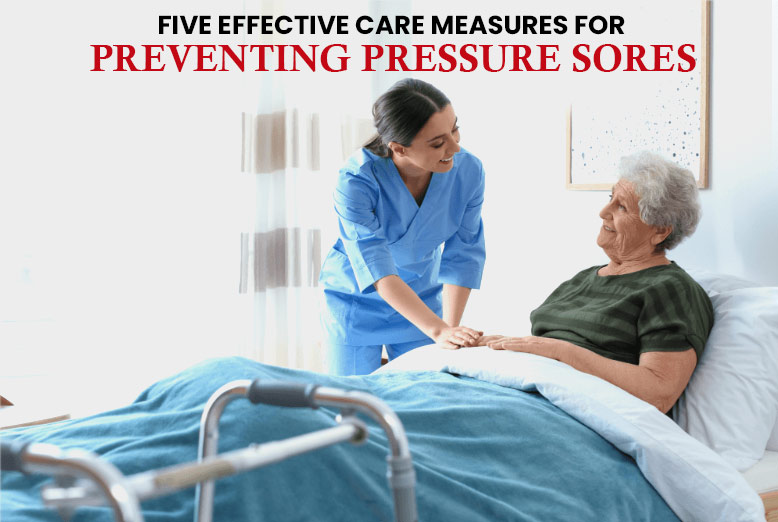Caring for the vulnerable, especially those who are immobile or bedbound, comes with its own set of challenges. Among the most concerning issues is the development of pressure sores, also known as bedsores or pressure ulcers. These painful lesions can cause severe complications if left unattended. In this blog, we aim to enlighten caregivers on the preventative measures that can be taken to protect those in their care from these sores, understand their causes, and recognize when legal action may be warranted.
What Are Pressure Sores?
Pressure sores are injuries to the skin and underlying tissue resulting from prolonged pressure on the skin. They often develop on skin that covers bony areas such as the heels, ankles, hips, and tailbone. Patients who have a medical condition that limits their ability to change positions or those who spend most of their time in a bed or chair are at higher risk.
Why Do Pressure Sores Occur?
These injurious sores occur when the blood supply to the skin is not sufficient due to prolonged pressure. When the skin and the underlying tissues are trapped between bone and a surface such as a mattress or a chair, the pressure may result in diminished blood flow. This deprives the tissues of oxygen and nutrients, causing cells to die and the skin to break down, forming an ulcer.
Long-Term Implications of Pressure Sores
The long-term implications of pressure sores can be both severe and multifaceted. If not promptly and properly treated, these injuries can lead to serious infections, including cellulitis and bone or joint infections. These infections can further deteriorate the patient’s health status, potentially leading to life-threatening conditions such as sepsis or even cancer in chronic wounds.
On a physiological level, pressure sores can cause extensive damage to muscles and supporting structures underneath the initial wound, necessitating surgeries or long-term care. Furthermore, the presence of chronic pressure sores significantly impacts the quality of life of affected individuals, leading to prolonged pain, increased dependency, and substantial medical expenses. It underscores the importance of early prevention and management to mitigate these long-term effects.
Five Effective Care Measures for Preventing Pressure Sores
1. Regular Repositioning.
Changing the position of a person who is immobile is critical. Repositioning helps relieve the pressure on the skin, particularly over bony areas. Ensure patients are moved at least every two hours and use supportive devices like cushions and mattresses designed to reduce pressure.
2. Skin Inspection and Care
Daily skin inspections can catch early signs of pressure sores. Pay attention to redness, warmth, or hardness as these may be early indicators. Keep the skin clean and dry, as moisture can further weaken the skin and make it more susceptible to damage.
3. Nutritional Support
Good nutrition is vital for skin health. A balanced diet rich in protein, vitamins, and minerals, along with adequate hydration, can help maintain skin integrity and promote healing.
For those looking to enhance skin health and resistance to pressure sores, incorporating specific foods into the diet can make a significant difference. Examples of beneficial foods include:
- Lean Proteins: Chicken, turkey, fish, and plant-based options like beans and lentils are excellent sources of protein that support skin repair and muscle mass.
- Fruits and Vegetables: Foods rich in vitamins and minerals, such as oranges, strawberries, broccoli, and leafy greens, contribute to skin health and immunity.
- Whole Grains: Options like oatmeal, brown rice, and whole-grain bread provide essential nutrients and fiber that help maintain overall health.
- Healthy Fats: Avocados, nuts, seeds, and olive oil contain healthy fats that are vital for skin health.
- Hydration: Adequate fluid intake is crucial. Water, herbal teas, and foods with high water content, like cucumbers and melons, help keep the skin hydrated.
4. Use of Support Surfaces
Support surfaces can help distribute weight more evenly, alleviate pressure, and prevent sores in high-risk patients.
This includes specialized mattresses, mattress overlays, cushions, and seating pads. These products are designed with materials like foam, air, gel, or water to help reduce pressure points and distribute the body’s weight more evenly. Air-filled mattresses can be adjusted to suit the individual’s body shape and size, offering customized support. Similarly, gel cushions provide a firm yet comfortable support base, effectively reducing pressure on vulnerable areas. It’s imperative for caregivers to assess the individual needs of those in their care to select the most appropriate support surface.
5. Encourage Mobility
To whatever extent possible, encourage and assist patients to move and engage in light activity. Even slight movements can stimulate blood flow and reduce the risk of pressure sores.
Legal Action for Neglected Care Resulting in Pressure Sores
Pressure sores are a sign of neglected care. If you suspect that neglect has occurred, resulting in pressure sores, legal action may be necessary to protect your loved one and ensure that proper care standards are enforced.
Consulting with a legal expert such as claimsaction.co.uk, who specializes in elder care or medical malpractice, can offer guidance on how to proceed with ensuring justice and care for those affected
Conclusion
Implementing these care measures can significantly reduce the risk of pressure sores and enhance the quality of life for those under your care. It is part of providing a high standard of care and must not be overlooked. By understanding the causes and taking proactive steps, caregivers can prevent these painful and often dangerous sores. Remember, vigilance is key in caregiving, and ensuring the comfort and health of those in your care is a profound responsibility.
Caring for someone is a privilege that comes with its own set of moral responsibilities. Pressure sores should not be part of the caregiving experience. With the right knowledge and commitment, caregivers can prevent harm and uphold the dignity of those in need.
If you’re concerned about the development of pressure sores in a loved one, or you’re a caregiver seeking advice, don’t hesitate to reach out for professional help. Providing proper care is a joint effort, and having the right support system can make all the difference.
Also Read: NutraFuels and Pressure BioSciences to collaborate on Nutraceuticals




















